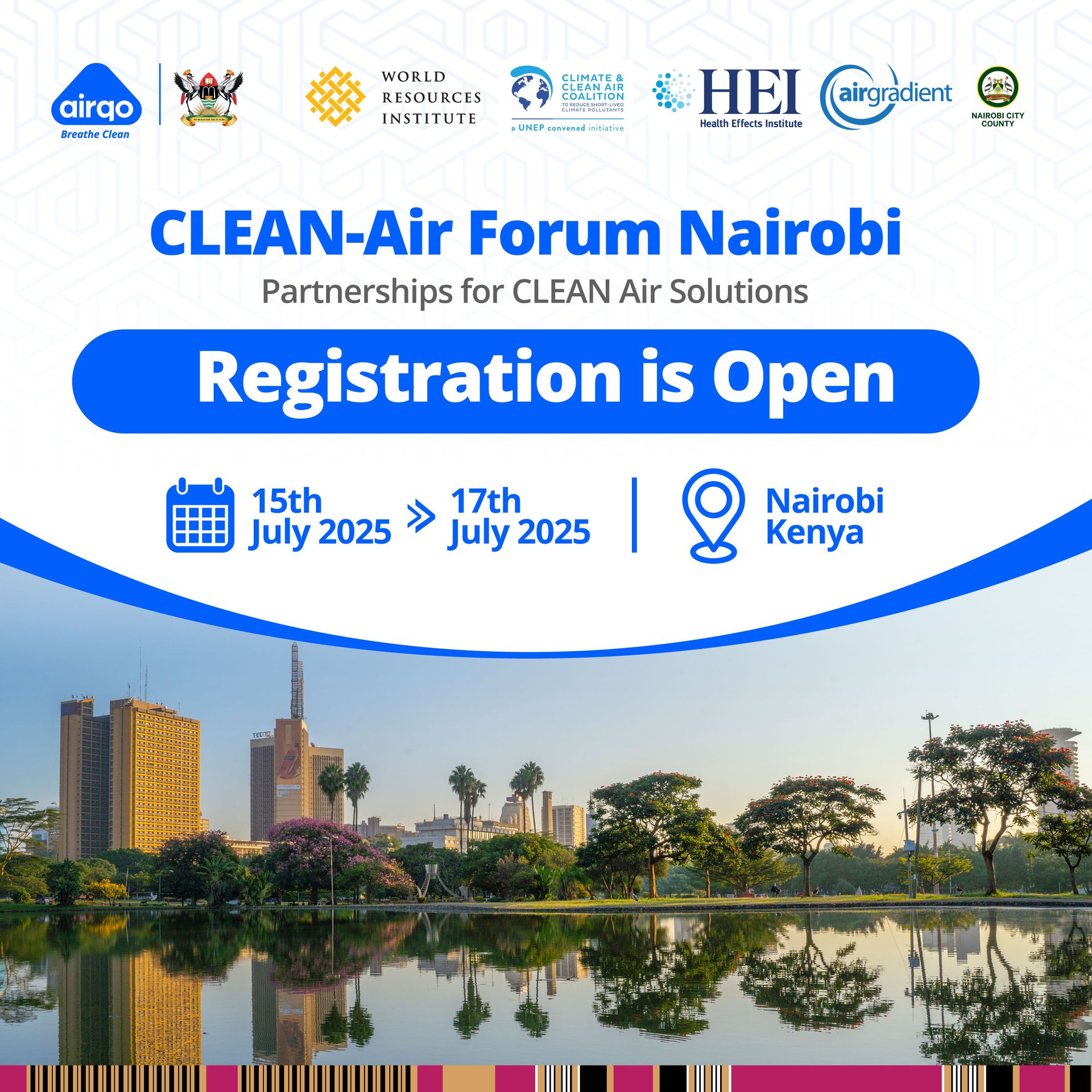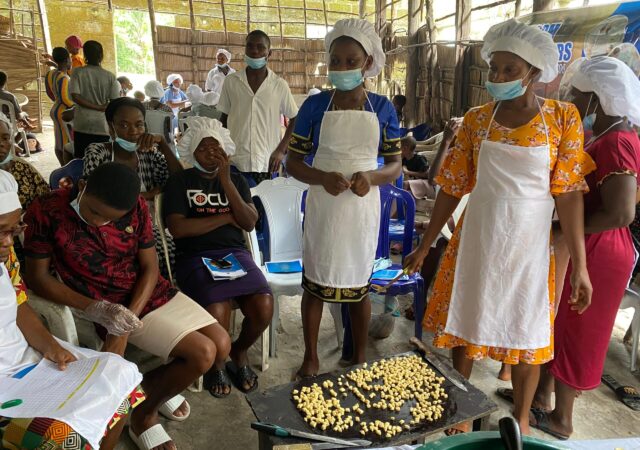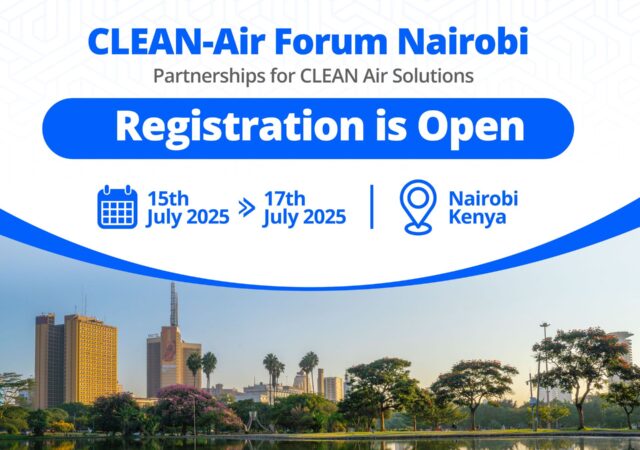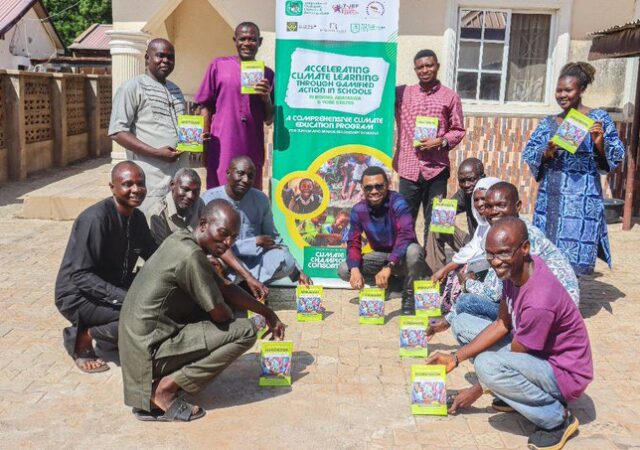Against the backdrop of the HEI Scoping Review, indicating a mortality rate of 294,000 across 2021 in Africa due to air pollution causes; regional experts, policymakers, and stakeholders discuss cross-sector strategies to reduce air pollution and protect public health.
Over 300 experts from across Africa and around the world will gather in Nairobi, Kenya, from July 15 to 17, for the third edition of the CLEAN-Air Forum, a continental platform focused on forging partnerships to address the growing air pollution crisis on the continent.
Held under the theme “Partnerships for Clean Air Solutions,” the Forum is expected to bring together a wide cross-section of air quality stakeholders; from government leaders and scientists to civil society representatives, youth advocates, development partners, and private sector actors. Their objective; to strengthen evidence-based approaches and catalyse collaborative action to reduce air pollution and improve public health outcomes across Africa.
“The CLEAN-Air Forum has become Africa’s leading platform for driving evidence, innovation, and equity in air quality,” said Wanjira Mathai, Managing Director for Africa and Global Partnerships at WRI. “The theme, Partnerships for Clean Air Solutions, is a timely reminder: no one city, country, or community can solve this crisis alone. We have to work together.”
The Urgency of Action
A recent HEI scoping review titled “Health Effects of Air Pollution in East Africa” revealed that air pollution was responsible for an estimated 294,000 deaths across the region in 2021, making it the second-highest contributor to mortality after malnutrition. The report identifies biomass fuel use and vehicle emissions as the leading sources of air pollution, compounded by poor monitoring infrastructure in many countries.
Despite Nairobi’s status as a continental environmental hub, the city has fewer than 100 publicly accessible air quality monitors. Much of this capacity has been built through partnerships between AirQo, Breathe Cities, UNEP, the GEOHealth Hub, and the Nairobi City County Government, with the aim of closing vital data gaps.
“Air pollution remains a major public health and environmental threat, both locally and globally,” said H.E. Johnson Sakaja, Governor of Nairobi City County. “The data we have must drive inclusive and informed action. This forum offers an opportunity for us to unite leaders, experts, civil society, and citizens around policies that protect our health and our city’s future.”
City Leaders Speak Out
The Forum will feature keynote presentations from several high-level urban policymakers and environmental leaders. Among them is Dr. Babatunde Ajayi, General Manager of the Lagos State Environmental Protection Agency (LASEPA), who emphasized the value of continental collaboration.
“When we collaborate, we share expertise, benchmark standards, and speak with one voice,” said Dr. Ajayi. “The CLEAN-Air Forum is helping African cities build that shared language and vision.”
Dr. Mathew Ochieng Owili, Deputy Governor of Kisumu, one of Kenya’s fastest-growing cities, highlighted how cooperation can unlock new resources and policy wins for African cities.
“Through shared data, harmonised policies, and joint strategies, cities can access more funding and implement innovation faster,” he noted. “I hope this Forum catalyses a united front, bigger investments, stronger commitments, and new partnerships for clean air.”
Building a Continental Clean Air Movement
This year’s Forum will also feature a refreshed vision for the Africa Clean Air Network, a growing community of practice that connects air quality actors across the continent. First launched in 2023 at the inaugural forum in Kampala, the network has grown into a dynamic hub linking science, policy, and grassroots action.
“After three years of building partner-led collaborations, the Africa Clean Air Network is now a powerful force—bridging science and policy, expanding Africa’s air quality data, raising awareness, and shaping bold new policies,” organisers noted.
Over 300 participants are expected at the 2025 Forum, including representatives from: National and local governments, Research and academic institutions, Health and environmental NGOs, Development partners, Community-based organisations, Tech startups and clean energy innovators, Youth-led initiatives and women’s groups.
Organised by AirQo, the Health Effects Institute (HEI), and World Resources Institute (WRI) Africa, in collaboration with the Nairobi City County Government, the 2025 Forum builds on the momentum of its successful past editions in Kampala (2023) and Lagos (2024).
As air pollution continues to threaten health, climate, and development across Africa, the CLEAN-Air Forum offers a vital platform to coordinate solutions, amplify voices, and advance a cleaner, healthier, and more equitable future for all.








Air pollution remains a major public health and environmental threat, both locally and globally, We all need clean air to live, grow and thrive. Yet 99% of us breathe air that is harmful and dirty, making air pollution one of our biggest health threats. Air carries the oxygen we need to live. Clean Air! Clean Environment!!